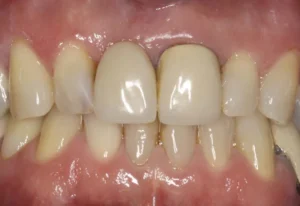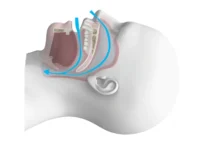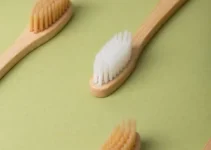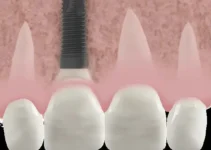When considering porcelain veneers, understanding the various factors that influence their price is crucial. The cost can vary depending on the quality of materials used, the expertise of the dentist, the location of the dental practice, and the specific dental needs of the patient. This article provides an overview of what you can expect to pay for porcelain veneers and offers insights into why prices might differ so markedly from one clinic to another. Moreover, it will help you understand the value they bring in terms of durability and aesthetic appeal, enabling you to make a more informed decision.
Factors Influencing the Price of Porcelain Veneers
Porcelain veneers are a popular cosmetic dental solution for those looking to enhance their smile. However, the cost of these veneers can vary widely, due to several key factors. In this section, we will explore the primary elements that influence the price of porcelain veneers, providing you with a clearer understanding of what might impact your investment.
Understanding these factors will enable you to make a more informed decision when considering porcelain veneers. By knowing what drives the cost, you can better evaluate your options and set realistic expectations for your dental care. Let’s delve into the specifics.
Material Quality
The quality of materials used in the production of porcelain veneers is a crucial determinant of their cost. High-quality porcelain not only looks more natural but also offers greater durability and longevity. Veneers made from premium materials will generally be more expensive due to their superior aesthetic qualities and resistance to chipping and staining.
There are various types of porcelain available, each with different properties and price points. For instance, pressed ceramic veneers are known for their strength and natural appearance, while stacked ceramic veneers offer exceptional esthetics but can be costlier. When choosing veneers, it’s essential to consider the material quality to ensure the best outcome for your smile.
Dentist Expertise
The expertise and reputation of the dentist performing the procedure significantly impact the cost of porcelain veneers. Highly skilled cosmetic dentists often charge more due to their advanced training, extensive experience, and proven track record of successful outcomes. Their proficiency ensures precise placement and customization of veneers, resulting in a more natural and aesthetically pleasing look.
Choosing a dentist with considerable expertise can give you confidence in the quality of work and the longevity of your veneers. It is advisable to research and select a dentist who specializes in cosmetic dentistry and has numerous positive patient reviews. 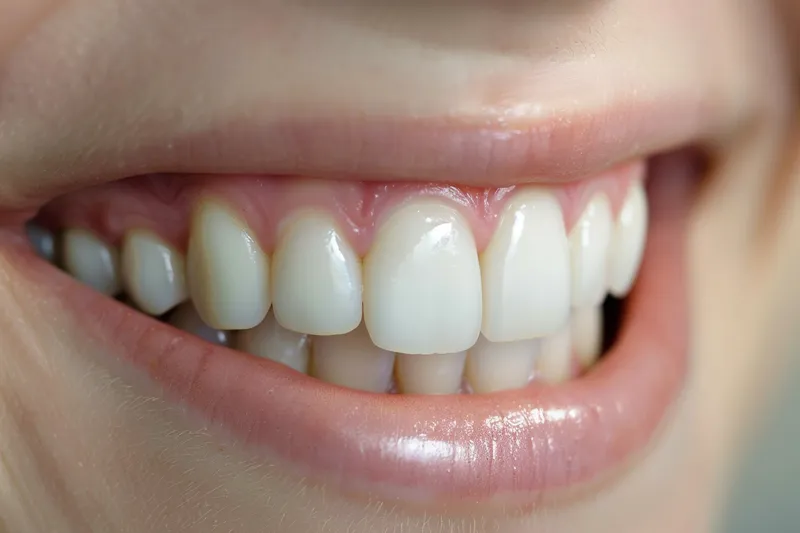 Investing in an experienced practitioner can make a significant difference in the overall satisfaction with your veneers.
Investing in an experienced practitioner can make a significant difference in the overall satisfaction with your veneers.
Furthermore, some dentists may use specialized techniques or equipment, which can also affect the price. Advanced technology and innovative methods often come at a higher cost, but they can enhance the precision and effectiveness of the procedure.
Geographic Location
The geographic location of the dental practice plays a considerable role in determining the cost of porcelain veneers. Dental practices in urban areas or regions with a higher cost of living typically charge more for their services compared to those in rural or less affluent areas. This difference is due to varying overhead costs, such as office rent, staff salaries, and general operational expenses.
For instance, getting porcelain veneers in a major city like New York or Los Angeles can be significantly more expensive than in a smaller town. However, the cost can also reflect the availability of experienced dental professionals and cutting-edge technologies in different regions.
Patients may consider traveling to different locations to find more affordable options. However, it’s crucial to weigh the potential savings against the convenience and overall quality of care. Balancing cost with the assurance of receiving high-quality dental service is essential for achieving satisfactory results.
Understanding the factors that influence the price of porcelain veneers can help you make a well-informed decision. For more insights into cosmetic dentistry and other dental procedures, be sure to check out our additional articles. They provide valuable information to guide you through your dental health journey.
Additional Costs Associated with Porcelain Veneers
Porcelain veneers are a popular cosmetic dentistry option that can transform your smile, but it’s essential to understand the full scope of costs associated with them. Beyond the primary expense of the veneers themselves, patients should also consider other factors that contribute to the overall investment. This article will explore some of these additional costs, ensuring you have a comprehensive understanding before undergoing the procedure.
In this section, we’ll discuss consultation fees, pre-treatment procedures, and post-treatment maintenance costs. Each of these elements plays a crucial role in the overall budget for porcelain veneers, and being well-informed will help you make the best financial and healthcare decisions.
Consultation Fees
The journey to achieving your dream smile often begins with a consultation. Many dental practices charge a fee for this initial visit. During the consultation, your dentist will assess your oral health, discuss your goals, and determine if you are a suitable candidate for porcelain veneers. The consultation fee can vary depending on the clinic’s location and the dentist’s expertise, ranging from $50 to $300.
Some practices may offer complimentary consultations as part of a promotional package, while others might deduct the consultation fee from the total cost of the treatment if you proceed. It’s essential to inquire about these details beforehand to avoid any surprises.
During a consultation, the dentist might also take diagnostic images, such as X-rays or digital scans, to get a clearer picture of your dental structure. These additional diagnostic procedures can incur extra costs, adding to your initial expenses.
Pre-Treatment Procedures
Before the application of porcelain veneers, some patients may require pre-treatment procedures to ensure optimal results. These procedures could include dental cleanings, fillings, or even gum contouring, depending on the patient’s existing oral health. Addressing these issues beforehand is crucial to create a stable foundation for the veneers.
For example, if you have cavities or signs of gum disease, these conditions must be treated prior to veneer placement. The costs of these pre-treatments can vary widely based on the complexity and extent of the required work. Here are some common pre-treatment procedures:
- Professional cleaning – Ensures teeth are free of plaque and tartar.
- Fillings or restorations – Repairs any cavities or damaged teeth.
- Gum contouring – Re-sculpts the gum line to achieve a more aesthetic look.
It’s important to have a thorough discussion with your dentist regarding any necessary pre-treatments. Understanding these potential additional costs can help you plan and budget effectively for your porcelain veneer journey.
Post-Treatment Maintenance
Once you have your porcelain veneers, maintaining them is crucial to ensure their longevity and appearance. While porcelain veneers are durable, they still require regular care and professional attention. One of the primary aspects of post-treatment maintenance is routine dental check-ups and cleanings.
Veneers do not protect the underlying teeth from decay or gum disease, so bi-annual visits to your dentist for check-ups and cleanings remain essential. These visits help to monitor the health of your veneers and the surrounding tissues, and can catch potential issues early before they become severe problems.
Additionally, your dentist may recommend specific dental products, such as non-abrasive toothpaste and mouthwash, to keep your veneers in pristine condition. These specialized products may cost more than regular dental care items but are worth the investment for the care of your veneers. In some cases, patients might experience minor issues with their veneers, such as chips or cracks. While porcelain veneers are robust, they are not indestructible. Repair costs depend on the severity of the damage and the number of veneers needing attention. Being aware of these potential costs will help you maintain a beautiful and functional smile for years to come. Understanding all the possible costs associated with porcelain veneers allows for better financial planning and helps you make an informed decision. For more insights on dental care and cosmetic procedures, check out our other articles on enhancing your smile and maintaining oral health.
Payment and Financing Options for Porcelain Veneers
Porcelain veneers are a popular cosmetic dental treatment that can significantly enhance the appearance of your smile. However, the cost of porcelain veneers can be a concern for many patients. To make this transformative treatment more accessible, dental practices often offer a variety of payment and financing options. Understanding these options can help you make an informed decision regarding your dental care.
In this article, we will explore different payment and financing options available for porcelain veneers, including insurance coverage, dental financing plans, and credit card payments. Each option has its own advantages and considerations, which we will discuss in detail to help you find the best solution for your needs.
Whether you are looking to improve your smile for personal or professional reasons, being aware of the financing options can ensure that you receive the best possible care without financial stress. Let’s dive into the specifics of each payment method to see which one might be the most beneficial for you.
Insurance Coverage
When considering porcelain veneers, one of the first questions patients often ask is whether their dental insurance will cover the cost. Unfortunately, most insurance plans classify porcelain veneers as a cosmetic procedure, which means they are typically not covered. This is because veneers are considered to enhance the appearance rather than address a medical necessity.
However, there are exceptions. For example, if veneers are required to restore a tooth that has been damaged due to an accident or another medical condition, insurance might provide partial coverage. It is crucial to consult with your insurance provider and your dental office to understand the specifics of what might be covered under your plan.
To make the most out of your insurance benefits, consider the following steps:
- Request a pre-treatment estimate from your dentist to submit to your insurance company.
- Review your policy for any exceptions or special clauses that might apply.
- Consult with your insurance provider directly for detailed information and clarification.
Dental Financing Plans
Many dental practices offer financing plans to make the cost of porcelain veneers more manageable. These plans allow you to spread the payments over a specific period, making it easier to fit the treatment into your budget. Financing plans are often provided through third-party companies specializing in healthcare credit, such as CareCredit or LendingClub.
Financing plans usually offer several options, including:
- Interest-free plans for a set period, usually 6 to 12 months.
- Extended payment plans with low-interest rates for longer periods.
- Customized payment plans based on your financial situation.
These options allow flexibility and can significantly reduce the financial burden of the treatment.
Before opting for a financing plan, be sure to:
- Read the terms and conditions carefully to understand any interest rates, fees, and repayment schedules.
- Check if there are any promotional offers available.
- Discuss with your dental office to select a plan that best fits your budget and needs.
Credit Card Payments
Using a credit card is another viable option for paying for porcelain veneers. This method offers the advantage of convenience and often comes with rewards or cashback benefits, depending on your card’s features. However, it is important to consider the interest rates and fees associated with credit card payments.
To make the most out of paying with a credit card:
- Look for credit cards that offer promotional financing options, such as 0% APR for an initial period.
- Ensure that you can manage the monthly payments to avoid accumulating high-interest debt.
- Consider using a card with rewards or cashback to get some return on your expenditure.
While credit cards provide an easy payment method, they can lead to financial strain if not managed carefully. Evaluate your financial situation and make sure this option aligns with your long-term financial goals.
In conclusion, understanding the various payment and financing options for porcelain veneers can make the process less daunting and more affordable. By carefully considering each option and consulting with your dental practice, you can find a solution that fits your budget and allows you to achieve the smile you desire. For more information on dental treatments and financing options, be sure to read our other articles!
Common Questions About Porcelain Veneers Price
Finding the right information on the cost of porcelain veneers might seem confusing initially. Here are some commonly asked questions to help shed light on the factors that influence their pricing.
What determines the price of porcelain veneers?
The price of porcelain veneers can vary depending on several factors including the experience of the dentist, the location of the clinic, the quality and brand of the materials used, and the specific dental needs of the patient. Typically, better-quality materials and highly skilled dental specialists may lead to a higher cost.
Can dental insurance cover the cost of porcelain veneers?
Generally, porcelain veneers are considered a cosmetic procedure, and most dental insurance plans do not cover them. However, it’s always best to check with your specific insurer as there could be partial coverage if the veneers are deemed necessary for structural reasons or other dental health concerns.

My name is Salman Kapa, a 73-year-old expert in bone regeneration and dental implantology. With decades of experience in the field, I am dedicated to advancing our understanding of oral health and hygiene. Through my research and writing, I aim to contribute to the development of innovative solutions in dental care.

